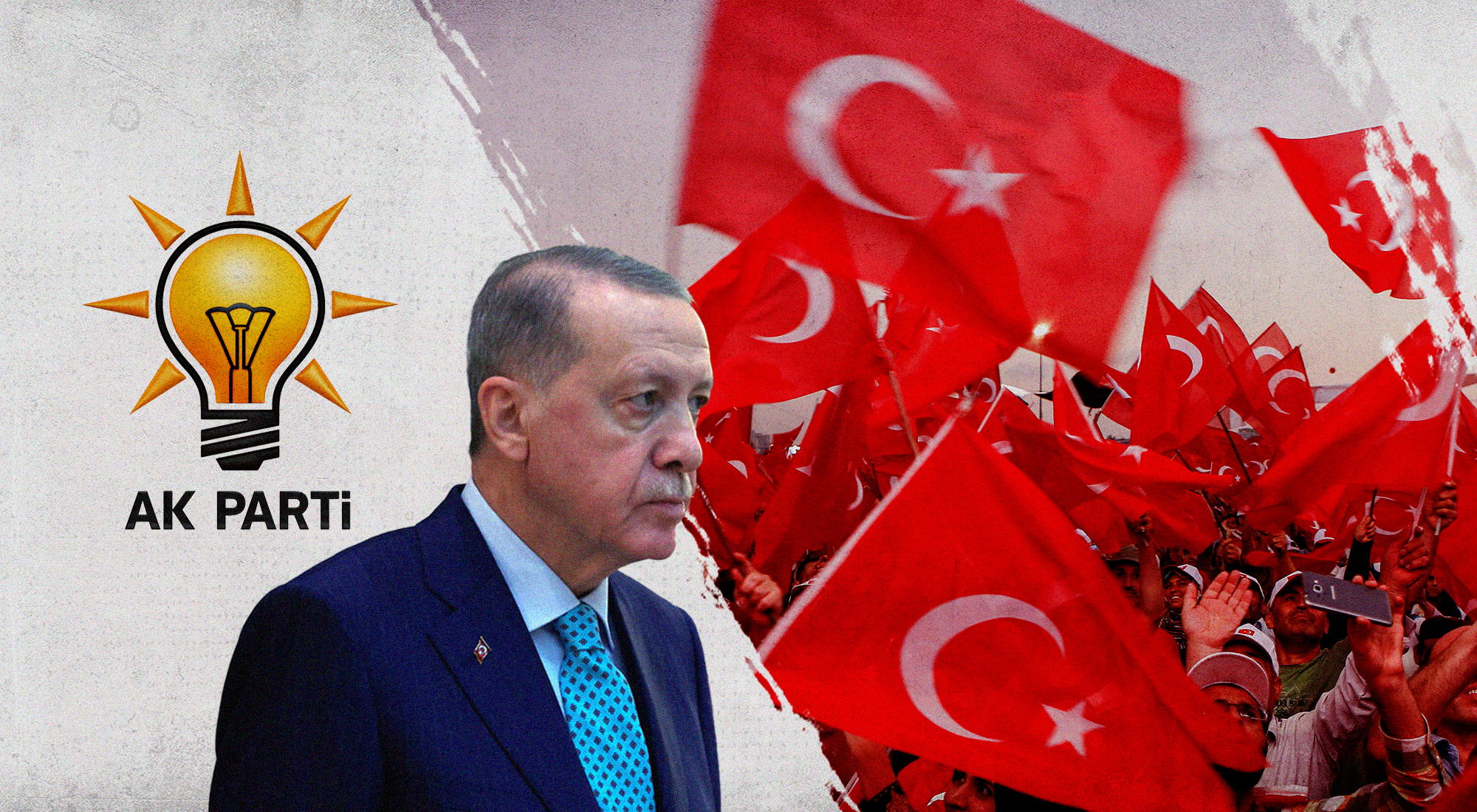Turkish President Recep Tayyip Erdoğan’s Justice and Development Party (Adalet ve Kalkınma Partisi – AKP) has recently celebrated the 23rd anniversary since its foundation, marking over twenty years of government in Türkiye. Since its rise to power, the AKP has shown a peculiar capacity of using the foreign agenda as a legitimacy tool to consolidate its domestic popular base. Until now, indeed, Türkiye’s foreign policy has been closely connected to the domestic syntheses. The analysis of Turkish foreign policy, therefore, cannot ignore references to internal political dynamics such as state-society relations, strategic culture, and domestic institutions.
Over the years, the AKP has implemented various approaches, arguably intended to protect Türkiye’s interests in a regional context characterized by growing challenges and uncertainty. In line with Turkish dynamism, different strategic choices have materialized, leading firstly to soft power outreach and identity projection, then to hard power and securitization, and subsequently to a new recourse to dialogue and mediation, placing Ankara at the rank of a smart power. However, the analysis of AKP’s regional and international stances implies careful consideration of both structural factors in the international system and domestic processes along with the leader’s image, i.e., the priorities of President Erdoğan. This article aims to uncover some of the causal factors that guided the AKP’s foreign policy for the past 23 years and to analyze their impact on Türkiye’s regional stance.
The AKP’s Early Years—or the “Golden Era”
In its first political mandate (2002-2007), the AKP made the European agenda and Türkiye’s EU accession journey a cornerstone of its foreign policy, which provided a useful cover to carry on crucial internal reforms. Indeed, the political program leading to AKP’s rise to power on 3 November 2002 had twin anchors of the EU and the IMF, accompanied by important constitutional and legislative adjustments. These reforms led to the abolition of the death penalty, the effective application of the European Convention on Human Rights and the rules contained in the EU-Türkiye harmonization package, useful at the time to confirm civilian authority over military tutelage and to undertake progressive institutional changes.
The public use and legitimation of the European rhetoric elevated Türkiye to the role of a mediator between the West and the Muslim Middle East, allowing Ankara to gain a certain degree of credibility at the start of accession negotiations for membership to the EU on 3 October 2005. However, while the rise of moderate Islam and the adoption of Washington Consensus measures under the IMF’s economic orthodoxy became the hallmarks of domestic politics, Türkiye’s European journey was hampered from the beginning by the unilateral accession of the Greek Cypriot part as the representative government of the entire island to the EU despite its rejection of the UN-sponsored “Annan Plan” in 2004.
Besides, Ankara began to forge its own strategic autonomy and regional outreach when in 2003 the Turkish parliament (TBMM) voted down a motion to deploy American troops in the country for invasion of Iraq; that was the first sign toward a less constrained, more independent foreign policy thinking outside the NATO/U.S. orbit since the AKP came to power. Nevertheless, in those years, the AKP not only became the party with a strong pro-European agenda, but it was also the leading actor in the reshaping of the internal balance of power as well as in the transformation process of Turkish strategic culture, until then anchored to what is referred to as “cautious insularity” inspired by a western-oriented vision and regional neutrality.[1]
Despite the initial enthusiasm, the European path soon showed its limits. After the negotiations started in 2005, the struggle among Turkish domestic interest groups and political obstacles to EU membership, mainly attributable to the unresolved Cyprus issue and the veto placed by some European chancelleries, began to produce mutual discontent. As a matter of fact, the negotiations have stagnated immediately; the Cyprus issue itself was the main reason why it got off to a lame start: At the Brussels Summit in December 2004, the EU formally granted Türkiye candidate status to begin accession negotiations on the Community acquis in 2005, but this was largely symbolic, as the “Republic of Cyprus” subsequently obstructed any efforts to advance Turkey’s integration with Europe. Over time with Türkiye’s democratic backslide, the opposition within the EU has thickened and further aggravated the discontent among the ruling elite in Ankara.
The Axis Shift toward the Middle East
Although anchoring to the West was a strategic priority, the AKP soon turned its attention to other geographies, mainly the Middle East but also to Africa and to a lesser extent Central Asia, with the aim to diversify its trade partnerships and establish itself as a global player. This trend was also a by-product of new actors responsible for foreign policy, which until then was restricted to the confines of diplomatic, military, and intelligence elites. The replacement ruling apparatus comprised representatives of private companies, charities, academia, and humanitarian aid groups, broadening the scope of Ankara’s agenda of foreign policy activism. The AKP’s policies were, in fact, aimed at raising Türkiye’s stature and influence, not only regionally but also globally, by leveraging its diplomatic influence for economic and cultural re-integration in its post-Ottoman hinterland.
The goal of this shift was to align the AKP’s Islamic conservatism with neoliberal globalization and position Türkiye as a model to combat radicalism in the Middle East. Indeed, when the AKP emerged on the political scene, Türkiye was operating in a highly competitive region and the margins of friction with some neighboring countries, including Greece, (Greek) Cyprus, Syria, Iran, and Armenia. The AKP pursued the goal of becoming an economic powerhouse and acting as a mediator in regional conflicts, when necessary, along with a view to expanding business opportunities. Therefore, the revitalization of historical, cultural, and religious ties under a new social contract became the hallmark of the new ruling elite’s vision for “strategic depth”, which provided a founding doctrine for the new diplomatic approach and re-commitment toward the Balkans, Middle East, and the Caucasus, and gradually to Africa.[2]
There were notable improvements in relations with Syria at the time, followed by détente with Tehran. For Türkiye, the religious conservative dimension of the AKP’s agenda opened a window of opportunity with the Arab world in terms of economic cooperation and strategic agreements that produced serious concerns in the West regarding Türkiye’s axis shift, what came to be overstated as neo-Ottomanism. On the other hand, Turkish policymakers claimed that the country’s interests can be best guarded by harmonizing its Western and Islamic dual identity in a hybrid culture. Soft power tools such as Turkish dramas, pop stars, and news broadcasting in foreign languages enabled greater regional engagement. Efforts to improve trade ties, liberalize visa regimes, and resolve political disputes reflected the belief that Türkiye could be the center of a new regional order along liberal motifs despite frictions along ethno-sectarian lines. Ankara would have gained credibility as a reliable partner and a valuable mediator in Western eyes.
However, deficiencies of this approach became evident soon along with growing tensions with Israel after the Gaza war of December 2008, which on the one hand elevated Erdoğan’s role to a spokesperson for the oppressed, while on the other it represented the first real challenge to Turkish “zero problems with neighbors” policy. Frictions with Israel, which culminated in the break of diplomatic relations after the Mavi Marmara (Gaza Flotilla) incident in 2010, and subsequent crises with Tel Aviv, emphasized patterns of ideological factors in the AKP’s policies. With power consolidation at the top, Türkiye’s regional policies have increasingly taken on value-based connotations, as was evident during the so-called political uprisings in the Arab world between 2011-2013.
The electoral reconfirmation of the AKP in 2011 allowed Erdoğan to address all Muslim countries in the neighborhood, expressing good wishes and thanks to each individual capital. It was a clear sign of the extent Turkish politics was in regional ideological winds and geopolitics shifts with the aim of playing a leadership role and presenting itself as a role model to look upon. Although Türkiye’s economic trajectory and President Erdoğan’s leadership role were initially perceived as a success story in the Arab world, the developments of events in Egypt, Libya and Syria put a shadow on the AKP’s regional approach that tested its bumpy relations with Saudi Arabia and the United Arab Emirates (UAE). Ultimately, the AKP’s brand of political Islam failed to establish the new regional order that its leadership had envisioned.
Securitization of Foreign Policy after the Failed Coup Attempt in 2016
Under isolation in an increasingly fragmented region, the AKP’s priority shifted to containment of internal power struggles among competing groups, like the Kemalists, Eurasianists, and Islamists, and threats to Türkiye’s sovereignty/territorial integrity, which produced further frictions with the U.S. and EU, causing a major rift and crisis of confidence with Ankara. At the end of 2014, with the consolidation of President Erdoğan’s internal project of the “New Türkiye”, regional politics became more interventionist and exposed to risks. Rising threats beyond the border and skirmishes over the Syrian skies were the scenes of a deep crisis with Russia, following the downing of a jet by the Türkiye in 2015. The terrorist attacks in the country and the failed coup attempt by Gülenists (FETÖ, as popularly known, which is a terrorist, secretive cult led by Fethullah Gülen from his refuge in Pennsylvania) in 2016 ushered a domestic political reshuffle and shift toward securitization in foreign policy.
As Turkish-American ties came under further strain, Ankara made about a sharp U-turn by expanding its bilateral and regional cooperation, proving the importance of relations with Moscow. As a manifestation of this new posture, one month after the failed coup, Türkiye launched its first military operation dubbed “Euphrates Shield” in Syria with the Free Syrian Army (FSA) to secure the southern land border from the ISIS and YPG/PKK terrorists, which would be the prelude to a series of Turkish military incursions named Olive Branch (2018), Peace Spring (2019), and Spring Shield (2020).
This strategic shift led to closer alignment with Russia and Iran under the Astana process, promoting an alternative framework for resolving the Syrian conflict to the detriment of relations with the West. Tensions with Washington escalated following Türkiye’s purchase of the Russian S-400 air defense system—marking the first such acquisition by a NATO member—which resulted in Türkiye’s expulsion from the F-35 Joint Strike Fighter (JSF) program and the imposition of CAATSA sanctions on its defense industry. Domestically, the erosion of institutional memory, the rise of a hybrid nationalist-Islamist strategic culture, and the consolidation of an authoritarian-centralized political structure have reinforced President Erdoğan’s executive power and imbued it with emotional symbolism.
Since 2018, Türkiye’s regional relations have been largely managed through direct communication between Erdoğan and his counterparts. The AKP has evolved into a state party, with its foreign policy shaped by both the post-coup climate and its alliance with the Nationalist Movement Party (MHP), pushing for an independent foreign agenda centered around the vision of a “Greater Türkiye.” To serve that end, the AKP’s use of political language, specifically its legitimation strategy regarding the Vatan (homeland) concept, was aimed at the domestic audience as well as external interlocutors.[3]
Between 2018 and 2021, the stalemate in relations with Egypt and the Gulf countries was compounded by tensions with Israel and developments in the Eastern Mediterranean (East Med). While the 2015-2017 Crans-Montana round of talks on the future of Cyprus failed, Greek Cypriot attempts to exploit natural gas deposits in the southeast of the island, together with the U.S., France, Israel, and Egypt, exacerbated tensions. Subsequently, from which Ankara remains excluded. Initially, domestic pressures to compete against rival regional alliances such as the EMGF outweighed demands to conform to normative policies of the EU, and Türkiye took an increasingly assertive position toward its opponents.
To break its isolation and counter perceived encirclement, Türkiye signed a memorandum of understanding with Libya’s UN-recognized Government of National Accord (GNA) in Tripoli, focusing on military cooperation and the delimitation of their respective Exclusive Economic Zones (EEZ) in the Eastern Mediterranean. This strategic move was followed by gas exploration and naval exercises, which heightened tensions with Greece, (Greek) Cyprus, and the EU during the summer of 2020. Türkiye’s reliance on hard power, previously tested through proxy conflicts in Syria and Libya, became a defining feature of its regional strategy. This approach became further evident in the Karabakh conflict (2020-2023), where Ankara provided drones and military advice to Azerbaijan against Armenia. However, Türkiye chose to de-escalate tensions after 2020 and to build bridges with its former foes, partly to attract investment, return to economic growth, and re-energize Erdoğan’s voter base to win the 2023 elections, but also to gain time to develop its indigenous defense industry with home-grown platforms such as MİLGEM (national frigate), TB-2 Bayraktar (UAV), and Kaan MMU (5th generation fighter jet).
Regional Re-alignment and Türkiye’s Evolving Priorities
With the evolution of global dynamics, given the uncertainty of the COVID-19 pandemic crisis that led to new economic and logistical challenges, but above all in light of Russia’s war in Ukraine and Israel’s war in Gaza, through a careful cost-opportunity assessment, Türkiye entered a new phase of regional politics aimed at normalizing relations with hostile neighbors, reassessing the role of soft power and establishing itself as a regional balancing actor.[4]
In 2021, important dialogue and de-escalation began with Saudi Arabia, the UAE, and Israel, followed by Greece, Egypt, and Armenia, which led to rapprochement, with the exception of the revamped hostilities with Israel. The ever-growing financial crisis, combined with widespread social discontent, which also involved conservative sectors dear to Erdoğan, contributed to the revitalization of some relationships of strategic importance for the purpose of attracting much-needed foreign investments.
Especially the new-found partnership with Saudi Arabia and the UAE aimed not only at repairing relations damaged by years of regional competition but also at finding a compromise on critical dossiers like Libya thanks to significant Arab investments in favor of Ankara. Assiduous contacts with NATO and European partners seem to have contributed to dust-settling in the aftermath of the acquisition of S-400s from Russia and Türkiye’s veto against Sweden and Finland’s entry to NATO. The positive dialogue between Ankara and Washington contributed to Türkiye’s approval of NATO’s expansion and acquisition of F-16 Block 70 aircraft upgrades, although CAATSA sanctions imposed on the Turkish defense sector remain in place.
The centenary of the foundation of the Republic, intended to also celebrate Erdoğan’s power at the head of the so-called “New Türkiye”, thus aims to seal the role of Ankara as a reliable partner in conflict transformation and a connecting interlocutor between the Global South and the Global North. Besides its autonomous foreign policy, increasingly more sophisticated defense industry, and rising nationalist rhetoric, soft power and dialogue remain the main drivers of the AKP’s foreign agenda.
At a Critical Juncture?
As Türkiye navigates its way through a terrain of ever-growing geopolitical hurdles, the country finds itself at a crucial crossroads in developing its roadmap. On 2 September 2024, the AKP’s spokesperson, Ömer Çelik, remarkably announced that Türkiye had filed an official application to become a member of the BRICS group,[5] which comprises Brazil, Russia, India, China, and South Africa, the five emerging market nations, in addition to the newly joined members, which include Egypt, Ethiopia, Iran, and the UAE. This move represented a significant shift in Türkiye’s orientation and perhaps a bold one, given that its goal is to achieve more autonomy as a global player.
In line with its broad objectives, Ankara has taken a step to solidify its position as a regional force that can bridge the North-South gap; thus, such action does not come out of a vacuum. However, it has sparked significant concerns over Türkiye’s longstanding commitments to NATO and the EU, given both blocs’ divergent approaches and geopolitical rivalries.
Türkiye is, in fact, the first NATO member state that has asked to join a coalition founded in 2006 as a response to discontent with Western-centric global governance structures such as the EU, the G7, and even NATO. As early as 2018, following an invitation to the BRICS annual summit, Türkiye has considered applying to join the bloc. In retrospect, it was just a matter of time before complete membership would manifest.[6]
With its growing ambitions on the global stage, Türkiye saw the group as a natural fit to deepen its economic connections with some of the world’s most significant growing economies, forge new ties beyond its traditional Western allies, and usher in a more multipolar world, all of which align with the AKP’s vision of a so-called “New Türkiye.” The architecture of the bloc also corresponds to Türkiye’s overarching objective to serve as an intermediary between the East and the West as well as the North and the South, therefore providing an opportunity for Türkiye to establish its influence in restructuring global economic and political processes along with shaping the bloc’s agenda.
Türkiye’s application to BRICS aims at leveraging on the EU as, besides the stagnant accession process, some issues remain pending, including the modernization of the Customs Union and the liberalization of visas for Turkish citizens. Although more recently, the EU has reiterated its desire to revitalize the relations with Türkiye, no concrete effort or systemic approach has been implemented so far.[7]
However, here lies Türkiye’s contradiction with its NATO membership. NATO, which has been a fundamental component of Türkiye’s foreign policy and security doctrine since 1952, sees the BRICS group, as well as its most potent members, Russia and China, as key rivals. The intelligence chiefs of NATO’s two prominent nuclear powers, the U.S. and the UK, reiterated this point in a recent op-ed they penned for the Financial Times.[8] NATO perceives BRICS as a component of the broader movement against the Western-dominated liberal international order, where its objective is to advance a multipolar world that opposes the U.S.-led post-World War II order in global governance, economics, and security. Thus, for NATO, Türkiye’s bid to join BRICS sparked further concerns given the growing geopolitical divide and conflicting interests between the two blocs, as memories of frictions between Türkiye and NATO when the former acquired S-400s in 2019 and vetoed Sweden and Finland’s accession to the club are still fresh.[9]
The question that lies ahead is how Türkiye, as a regional balancer between competing political-economic blocs, can navigate this divergence and anxiety. With its often-used pragmatic approach, what can Türkiye do? To effectively balance both memberships without alienating either bloc, Ankara might need to present its participation in BRICS as largely economic cooperation intent on enhancing trade, investment, and development. This would enable Türkiye to derive economic advantages without jeopardizing its security obligations with NATO and maintaining its commitments to the alliance. By actively participating in NATO’s efforts in counter-terrorism, joint exercises, and regional security, Türkiye can alleviate NATO’s concerns and perhaps make it inevitable that its role within the alliance remains highly valued, notwithstanding differences of opinion and interests that may arise in the near future.
By leveraging its unique position as an intermediary between NATO and BRICS, and by emphasizing its capacity to facilitate dialogue and reduce tensions, Türkiye can position itself as a valuable partner to both groups. However, as geopolitical competition intensifies, maintaining this delicate balance will become increasingly challenging. Türkiye will face growing pressure to navigate conflicting demands from both blocs, each pushing for actions aligned with their respective strategic interests. Consequently, Türkiye’s ability to manage these pressures will be crucial in determining whether it can sustain its influence within both alliances.
Türkiye must now carefully assess its relationships with both BRICS and NATO as its foreign policy reaches a pivotal juncture. As Ankara pursues greater autonomy on the global stage, it faces the challenge of balancing its economic ambitions with its security commitments—an undeniably challenging task. Skillful diplomacy will be key to maintaining its role as a regional balancer, enabling Türkiye to shape the future of both alliances while minimizing friction with either group. Successfully navigating this complex dynamic will be essential for preserving its influence and avoiding potential conflicts of interest.
Conclusion
Türkiye’s foreign policy under the AKP has been marked by a series of strategic recalibrations aimed at navigating complex regional and global dynamics. As the country aspires to cement its role as a bridge between divergent geopolitical blocs, its recent application to join BRICS underscores a shift toward a more independent and multipolar approach in its international relations. However, this ambition presents challenges, particularly in balancing its commitments to NATO with its desire for greater autonomy and influence in emerging global frameworks. The path forward will require deft diplomacy and careful maneuvering to reconcile these dual objectives without alienating its traditional Western allies or undermining its strategic aspirations. How Türkiye manages these competing demands will shape its future role as both a regional stabilizer and a global player in an increasingly polarized world.
[1] Malik Mufti, Daring and Caution in Turkish Strategic Culture: Republic at Sea (New York: Palgrave Macmillan, 2009), 3–4, https://books.google.com.tr/books?hl=en&lr=&id=-R19DAAAQBAJ.
[2] A. Davutoğlu. Statejik Derinlik. Türkiye’nin Uluslararası Konumu, Küre, İstanbul 2001
[3] Serhat Süha Çubukçuoğlu, Turkey’s Naval Activism: Maritime Geopolitics and the Blue Homeland Concept | SpringerLink, 1st Edition, Palgrave Studies in Maritime Politics and Security (New York, NY: Palgrave Macmillan, 2023), 21, https://link.springer.com/book/10.1007/978-3-031-37204-9.
[4] Valeria Giannotta, Aurora Ianni, Mattia Giampaolo, Ahmet Keser and Murat Aslan., ‘’Türkiye and regional normalization: impact and sustainability,’’ CeSPI Oservatory on Türkiye, June 2024, https://www.cespi.it/sites/default/files/osservatori/allegati/turkiye_and_normalization_in_the_region_1st2nd_monitorfinal_report_0.pdf
[5] Leela Jacinto, “Turkey’s ‘Balancing Act’ with BRICS Bid Raises NATO Concerns.” France 24, September 5, 2024, https://www.france24.com/en/europe/20240905-nato-member-turkey-balancing-act-brics-bid-russia-china.
[6] Jorge Heine, “East Is East, West Is West − and Turkey Is Looking to Forge Its Own BRICS Path between the Two,” The Conversation, September 12, 2024, https://theconversation.com/east-is-east-west-is-west-and-turkey-is-looking-to-forge-its-own-brics-path-between-the-two-238498.
[7] Valeria Giannotta, ‘’Is Türkiye losing interest in partnership with the EU?,’’ Daily Sabah, September 10, 2024, https://www.dailysabah.com/opinion/op-ed/is-turkiye-losing-interest-in-partnership-with-the-eu.
[8] Bill Burns and Richard Moore, “Bill Burns and Richard Moore: Intelligence Partnership Helps the US and UK Stay Ahead in an Uncertain World,” September 7, 2024, https://www.ft.com/content/252d7cc6-27de-46c0-9697-f3eb04888e70.
[9] Leela Jacinto, “Turkey’s ‘Balancing Act’ with BRICS Bid Raises NATO Concerns,” op. cit.












